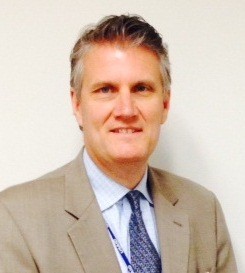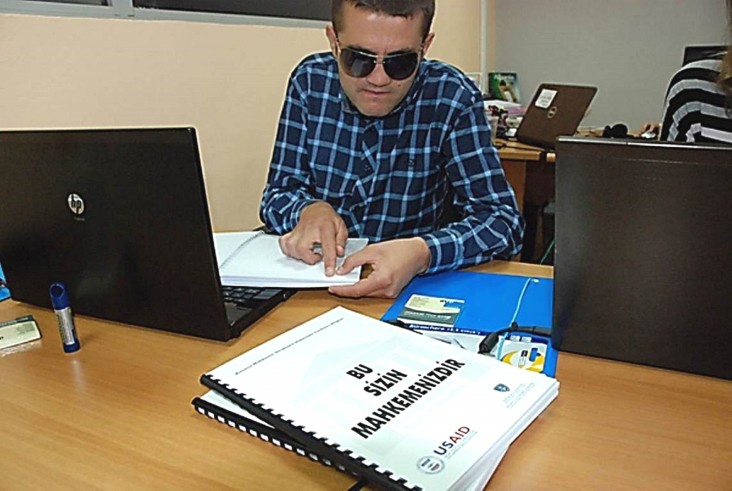 A woman poses for a photo after casting her vote in Daikundi province, June 14, 2014. Afghanistan’s 2014 elections saw historic turnout, and the inauguration of President Ashraf Ghani marked the country’s first democratic transfer of power.
USAID
A woman poses for a photo after casting her vote in Daikundi province, June 14, 2014. Afghanistan’s 2014 elections saw historic turnout, and the inauguration of President Ashraf Ghani marked the country’s first democratic transfer of power.
USAID
 A woman poses for a photo after casting her vote in Daikundi province, June 14, 2014. Afghanistan’s 2014 elections saw historic turnout, and the inauguration of President Ashraf Ghani marked the country’s first democratic transfer of power.
USAID
A woman poses for a photo after casting her vote in Daikundi province, June 14, 2014. Afghanistan’s 2014 elections saw historic turnout, and the inauguration of President Ashraf Ghani marked the country’s first democratic transfer of power.
USAID
Over 750 million children under the age of 16 have no birth registration certificate. This leaves them with no access to basic education and health services simply because they have no legal identity.
The United Nations estimates that, in 2011, 30 percent of all development assistance did not reach its intended beneficiaries because of corruption. A study by Transparency International found that maternal health, one of the current Millennium Development Goals (MDGs), did not meet global targets partly because of high levels of bribery in the health sector in many countries. In Nepal, for example, funds intended to support hospital care for expectant mothers who were at risk from home deliveries were pocketed by corrupt health officials who created lists of fake mothers to cover their tracks.
Although the MDGs contributed to remarkable progress in addressing a number of global development challenges, the absence of a specific goal relating to governance and rule of law was a missing ingredient that limited progress in fully achieving other MDGs.
I have been a democracy and governance adviser at USAID for 14 years, and have witnessed firsthand the impact of poor governance, weak public institutions, high rates of corruption, ineffective judicial institutions and unaccountable leaders in many countries where USAID works.
- In Tirana, Albania, what should have been a 15-minute drive across town turned into two hours of traffic gridlock after construction of a new highway overpass came to a grinding halt because construction funds were stolen.
- In the West Bank and Gaza, a USAID-funded activity that supported a Palestinian media center’s live televising of the Palestinian Legislative Council was shut down by the Palestinian Authority following broadcasts in which legislators criticized government officials about corruption.
- In Cambodia, a former outspoken member of the Cambodian Parliament, whom I worked with closely when I lived in the country in 1994 and 1995, was gunned down in a restaurant in the middle of Phnom Penh. No one has even been convicted of the murder. A 2012 Human Rights Watch report found that hundreds of political opposition members, labor leaders, human rights activists and journalists in Cambodia have been killed over the past 20 years with very few arrested, prosecuted or convicted. Not coincidentally, Cambodia ranks in the bottom third of the U.N.’s Human Development Index.
As co-chair of a U.S. interagency working group on post-2015 governance and effective institutions, I am excited that in the global discussions on the post-2015 development agenda, there is a growing consensus around the inclusion of a goal on peace, governance and rule of law.
The U.N.’s 2014 My World survey found that “honest and responsive government” was one of the top four development priorities identified by over 7 million people worldwide. Moreover, demand for a governance goal is coming from citizens and civil society groups all over the world.
The United States too has been a strong and forceful advocate for inclusion of peace, governance and rule of law in the post-2015 development framework, which will guide sustainable development efforts from 2015 to 2030.
Last year, as part of preparing for the post-2015 sustainable development goals, a team at USAID helped develop a robust set of goals and targets, highlighting the critical importance of effective, accountable and transparent governance and rule of law systems to sustainable development. I’m pleased that the final U.N. proposal now includes a stand-alone goal on governance and rule of law. Goal 16 represents a breakthrough in thinking among the global development community that global development goals, including eradicating extreme poverty, will not be fully realized unless there is a strong emphasis on governance and the rule of law.
And, if the U.N. General Assembly approves a governance goal this September during its annual meetings, USAID is well-placed to support a governance goal and targets through its ongoing support for the development of accountable, transparent, and effective governing and judicial systems in countries around the world.
Our programs already tackle many of the issues identified in the targets set forth in Goal 16.
In Senegal, USAID assistance is helping citizens in four districts increase the number of children with birth certificates. The approximately 30 percent of children in those four districts without some form of legal identification is a real impediment to their accessing services such as health and education, thus contributing to higher levels of poverty in those areas. One of the proposed targets under Goal 16 is to provide legal identity for all, including birth registration, by 2030.
Other targets under Goal 16 call for developing effective, accountable and transparent governing institutions and substantially reducing corruption and bribery in all its forms. Already, we are working with countries around the world to build transparent and accountable financial and legal systems. The U.S. Government devotes approximately $1 billion per year to anticorruption and related good governance and rule of law programs.
With former USAID Deputy Assistant Administrator Tony Pipa’s appointment as the U.S. special coordinator for the post-2015 development agenda, I expect the United States to lead the push for a robust governance and rule of law goal in the final negotiations and adoption of the post-2015 development agenda. Only then can full progress be made on eradicating extreme poverty and meeting all of the new global development goals by 2030.













Comment
Make a general inquiry or suggest an improvement.